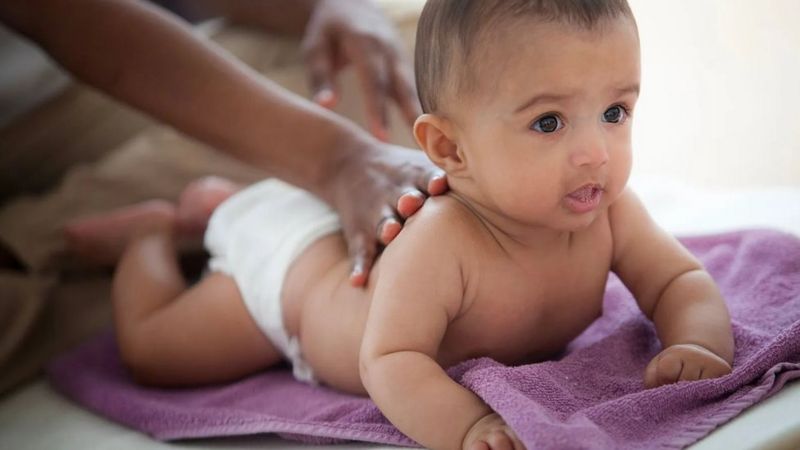The practice of child abuse has been around for centuries in many parts of the world, especially in southern Asia. Now scientists say this culture may save the lives of many children.
Renu Saxena returned home from the hospital with her newborn baby after giving birth safely. But what surprised her most was the appearance of the baby. He grew very small and his skin was light enough to see the veins running through his light skin.
Saxena gave birth prematurely at 36 weeks gestation, weighing two kilograms and four grams (2.4kg).
Saxena's family advised her to breastfeed every day as it would help her grow. But doctors advised her to wait a little longer until the baby's weight increased before squeezing her.
Saxena agreed with them and waited for two weeks. During that period the baby gained 100 grams and was sleeping and waking up every once in a while.
Saxena hired a retired nurse who is also a specialist in handling babies and learning how to massage her son. Things started to get better, the baby started to sleep better and also gained weight.
The results are a clear indication that tantrums are highly beneficial. In South Asia, even babies born prematurely are also abused.
Research shows that oily skin when used properly has the potential to help baby weight gain, prevent bacterial infections, and reduce infant mortality by up to 50 percent.
Research however suggests that parents wishing to perform the procedure should first seek advice from experts to ensure it is safe for their child.
Families who respect this ancient culture, also have their own perspective.
Saxena, who is also a former sales manager, hails from the northern Indian state of Uttar Pradesh, an area known for its culture of childbirth and childbirth.
His family has been following this process for years and years.
"My mother always grew up telling me that I was very soon after birth - I was her third child, she says my rapid growth contributed to the daily grind when she returned home from the hospital," says Saxena.
An infant care nurse taught Saxena how to prepare ointment - by switching between coconut and vegetable oil, which needs to be warm before starting to use - the baby should be massaged for at least 30 minutes and then bathed the baby with running water. lukewarmness.
"We started by gently stroking the abdomen and other parts of the body, including the toes, and continued with the procedure to the scalp," says Saxena.
Researchers say that squeezing a baby in its infancy has health benefits that can help it even in adulthood.
'' Skin is a major part of the human body whose value and health are often overlooked, '' says Gary Darmstadt, a professor in the Department of Pediatrics and Sustainable Medicine at Stanford University.
The first time she visited Bangladesh and India, Darmstadt discovered that mothers, especially the elderly, preferred to treat infants. "I was very surprised to find out that this culture has been around for centuries, so I started researching more," he says.
And in 2008, in a study of 497 premature babies who received daily massages at a hospital in Bangladesh, Darmstadt and its partners showed that this old exercise could save lives.
"We found that the risk of infection decreased by 40 percent, while the risk of death decreased by between 25 and 50 percent. Very important results," he says.
In another separate study, the researchers also found that regular massage helps build up the baby's microbiome - a type of bacteria found in the skin and intestines. The microbiome plays a very important role in increasing immunity.
The benefits of wrapping a baby
Scientists say that tapping stimulates the nerves that connect the brain and stomach, a condition that helps the baby digest food and get nutrients, a condition that helps babies gain weight.
Squeezing the baby in the womb reduces pain, this is especially important for premature babies as they spend months alone in the hospital.
Squeezing the baby also improves sleep and helps release the hormone oxytocin.
Pushing the baby makes you learn how to communicate with the baby. It makes the child feel safe, loved, and respected, and the parent learns his or her behavior and understands him or her better.
The parent will be self-confident, and studies show that this condition will help you reduce your postpartum depression.



